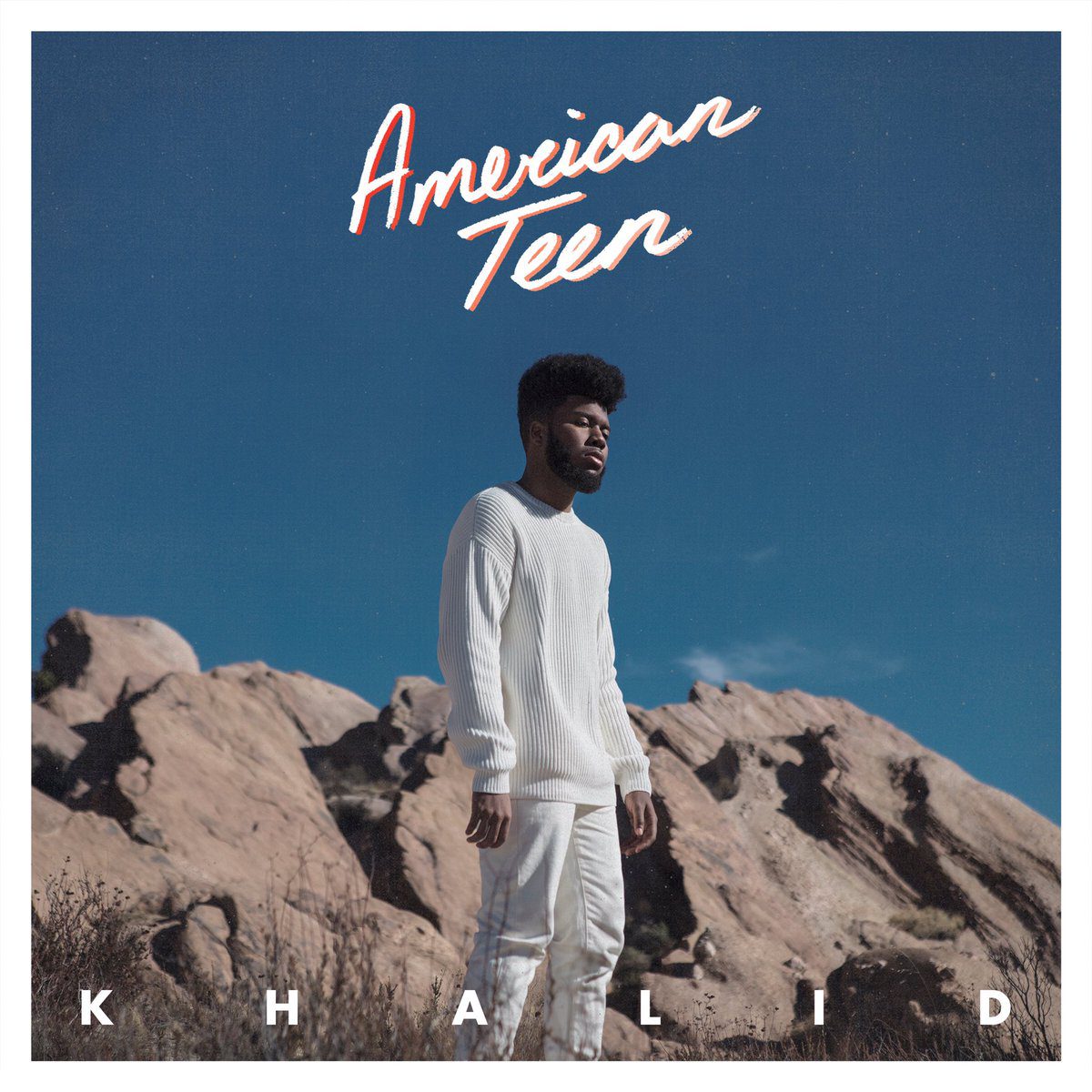The first sound that you hear when listening to Khalid’s debut album, American Teen, is the familiar ring of an alarm clock. It makes sense; Khalid is just 19 years old. He’s writing about the monotony of high school; the cycle of everyday life and, more fittingly, about how to break out of the cycle and redefine yourself.
What follows from ‘American Teen’ are 14 more tracks exploring the ups and downs of life as a young adult, relationships and contemporary love in the heartlands of America.
It’s a kind of homage to American youth – the words are visual and visceral. Set in the backdrop of a dusty Texan city – his self-proclaimed ’lonely city of El Paso’– I like to imagine that Khalid takes us on a road trip through his story. From the traffic (‘traffic’s backed up from corner to corner so I guess I’ll hit the highway’), to friendships lost and found, late night Uber rides, and the honest realisation that we’re all ‘young, dumb and broke’ at times.
I don’t normally listen to lyrics (don’t judge me), but I did when I first listened to Khalid’s album. And it’s probably because the lyrics are so relatable. It’s straight up, honest and unapologetic about millennial lives: there is no defiance or rage, just real recollections and musings. He gifts the millennial generation legitimacy amidst a trend to dismiss our voices and experiences. Yes, we might be young, dumb and broke, but ‘we still got love to give.’
Intertwined throughout the album are cultural references that we can all relate to – in American Teen he muses ‘I don’t even remember, but my friend passed out in the Uber ride.’ We’re all in solidarity when he refers to the way technology defines millennial love. In his first hit ‘Location’, he doesn’t ‘want to fall in love off of subtweets.’ In ‘Saved’, he poignantly sings: ‘So I’ll keep your number saved ‘cause I hope one day you’ll get the sense to call me’ – and again later: ‘I erased all the pictures from my phone of me and you.’ We totally get it, don’t we?
His music does more than reflect his contemporaneity. Once I read a little about his life, I realised the introspection encased in his songs reflect his past. Khalid wasn’t a popular kid at school – he wasn’t the typical athletic American high schooler. He’s had his fair share of heartbreak with his father dying early in his life. He’s an ‘army kid’: he spent his childhood moving from place to place with his mother who had a career in the military. He says he didn’t find his home until he moved to El Paso.
When he sings ‘I’m proud to be American’, my first reaction was why? Then I realised he’s re-defining and re-emphasising what it should mean to think of an American in what is a toxic political and social context. Khalid claims America as his own, as he should. In doing so he has carved out a new and timely American cultural reference for young people to identify with.
The album is definitely covering some serious issues, but it carries us on an upbeat journey – full of R&B/pop infused catchy riffs. It’s breezy and warm, and I can feel myself listening to it on an open El Paso road, dust and all.
With a sound that has a definite throwback to the 80s, American Teen has found top 40 fame, while retaining grace and originality. Khalid doesn’t just have one hit song, followed up by 12 other vapid tracks. This is a record that must be listened to from start to finish – many times.
By the time I finish the album, I feel like I’ve had a glimpse into Khalid’s life and the life of Americans in El Paso. But it also had value to me as a mid-twenties Australian.
When listening to American Teen over the course of a week, each day brings a new obsession. Through the weekdays I was feeling ‘Another Sad Love Song’, soon followed by ‘Winter’ and ‘Therapy’. By the weekend all I wanted was to feel like an American Teen.
An American Teen that celebrates diversity is honest and is just trying to get through life.
We acknowledge the Ngunnawal and Ngambri people, who are the Traditional Custodians of the land on which Woroni, Woroni Radio and Woroni TV are created, edited, published, printed and distributed. We pay our respects to Elders past and present. We acknowledge that the name Woroni was taken from the Wadi Wadi Nation without permission, and we are striving to do better for future reconciliation.
